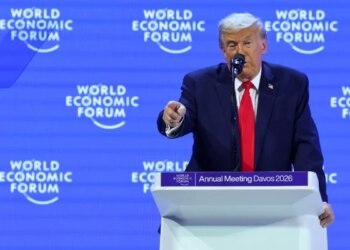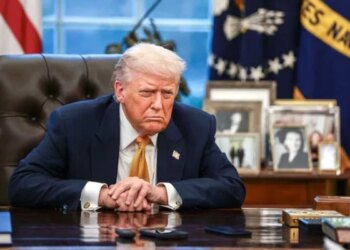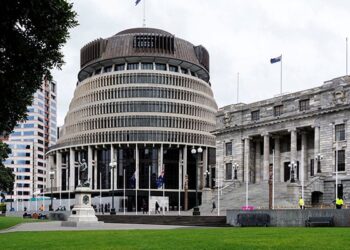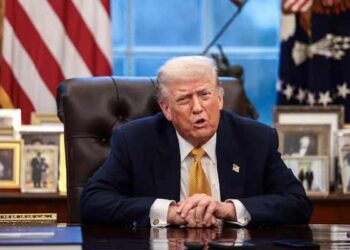Select Language:
U.S. President Donald Trump announced a military strike against a vessel from Venezuela that was allegedly transporting illegal drugs, marking the first known operation following increased deployment of U.S. warships to the southern Caribbean.
Trump stated at the White House, “Just moments ago, we targeted a drug-carrying boat, significantly loaded with narcotics.” He emphasized that more operations are forthcoming, accusing Venezuela of allowing the drugs to flow into the U.S. He shared a video on his Truth Social platform, which appeared to show overhead drone footage of the speedboat exploding and catching fire at sea.
According to Trump, the strike resulted in the death of 11 individuals, with no U.S. forces harmed. The crew is identified as members of the Venezuelan gang Tren de Aragua, which the U.S. designated a terrorist organization in February. Trump reiterated accusations linking the group to Venezuela’s President Nicolas Maduro—charges that Caracas denies.
The Venezuelan Communications Ministry has not yet responded to inquiries. The Pentagon has yet to release detailed information about the operation, including the type and amount of drugs involved or specifics of how the strike was executed.
This method—targeting and destroying a suspected drug vessel rather than intercepting and capturing its crew—is highly unusual and reminiscent of U.S. strategies against militant groups like al Qaeda. Recent weeks have seen the deployment of several warships in the Caribbean to enforce Trump’s crackdown on drug cartels, with seven ships and a nuclear-powered fast attack submarine either in the area or arriving soon, carrying over 4,500 sailors and Marines.
While U.S. Coast Guard and Navy vessels frequently patrol the Southern Caribbean, the current military buildup surpasses typical regional deployments. The fleet includes ships such as the USS San Antonio, USS Iwo Jima, and USS Fort Lauderdale, some equipped with helicopters and Tomahawk cruise missiles. U.S. intelligence gathering has also involved deploying P-8 surveillance planes over international waters.
Secretary of State Marco Rubio suggested that the drugs intercepted were likely headed toward Trinidad or other Caribbean nations, reaffirming that the U.S. intends to take aggressive action against drug trafficking organizations domestically.
Trump’s focus on Maduro has heightened concerns in Caracas that the Venezuelan government itself might be a primary target. Last month, the U.S. doubled the reward for information leading to Maduro’s arrest, raising it to $50 million, citing links to drug trafficking and organized crime. Venezuelan officials maintain that Tren de Aragua was dismantled in 2023 after a prison raid, insisting it is no longer active within the country.







